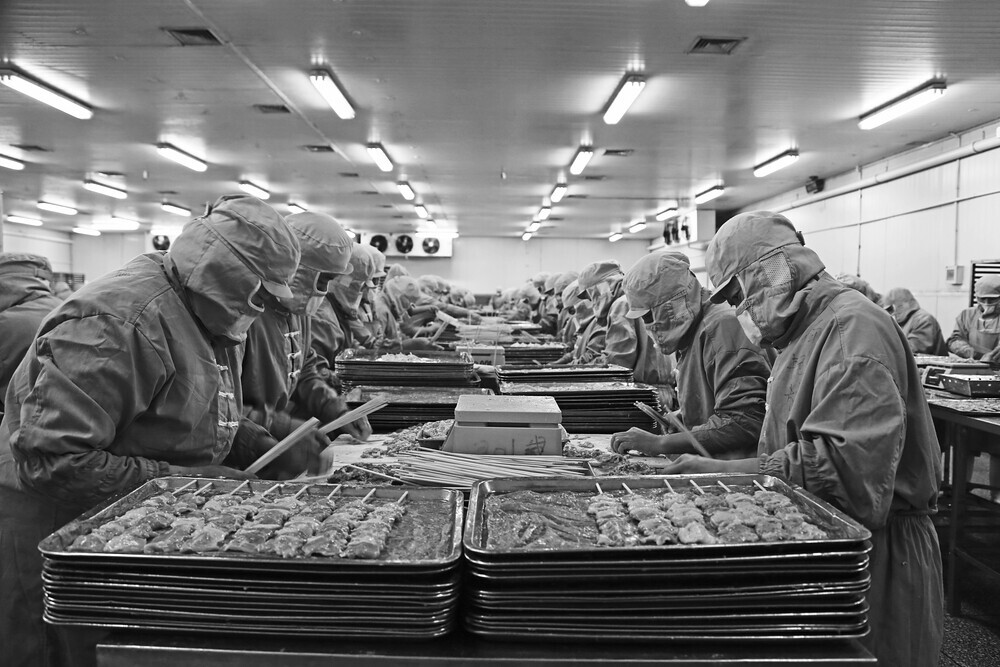The recent announcement by US Agriculture Secretary Brooke Rollins regarding the administration’s stance on deporting all immigrants in the country illegally has sent shockwaves through the food and beverage industry. The move to replace immigrant workers with a 100% American workforce could have significant implications for the trade, supply chains, sustainability, and strategic outlook of the industry. This article delves into the potential impact of this decision on food and beverage professionals and offers insights into what the future may hold for the sector.
Challenges in Workforce and Automation
One of the immediate challenges that the food and beverage industry may face as a result of this decision is the shortage of skilled labor. Many immigrants currently work in various roles within the industry, from farm workers to food processing plants, and their sudden removal could lead to a significant gap in the workforce. While Secretary Rollins suggested that American workers receiving government aid could potentially fill these positions, the reality is that not all able-bodied adults on Medicaid may be willing or able to take on these roles.
Automation has been touted as a possible solution to the workforce shortage, but implementing automation in the food and beverage industry comes with its own set of challenges. The upfront costs of automation technology can be prohibitive for many businesses, especially smaller enterprises. Additionally, the training and re-skilling of existing workers to operate and maintain automated systems will require time and resources that may not be readily available.
Impact on Supply Chains and Sustainability
The disruption in the workforce caused by the mass deportation of immigrant workers could have far-reaching effects on the supply chains of food and beverage companies. Many businesses rely on a steady stream of workers to harvest crops, process food, and deliver products to consumers. Any interruption in this process could result in delays, shortages, and increased costs for businesses.
From a sustainability perspective, the removal of immigrant workers could also impact the environmental practices of the food and beverage industry. Many immigrants work in sustainable farming practices, such as organic farming or regenerative agriculture, and their absence could hinder the industry’s progress towards more environmentally friendly practices. Finding ways to maintain these sustainable practices in the face of a changing workforce will be a key challenge for the industry.
Future Strategic Outlook
In light of these challenges, food and beverage professionals will need to adopt a more strategic approach to their operations. Developing contingency plans to address potential labor shortages, investing in automation technology where feasible, and exploring alternative sources of labor will be crucial for businesses to stay competitive in the market.
Collaboration with industry partners, government agencies, and advocacy groups will also be essential to navigate the changing landscape of the food and beverage industry. By working together to address common challenges and find innovative solutions, businesses can ensure their long-term sustainability and growth.
Industry Analysis
The impact of the US administration’s decision to deport immigrant workers and replace them with American labor will likely have widespread effects on global pricing, logistics, and food and beverage planning. As the industry grapples with labor shortages, increased costs, and supply chain disruptions, businesses may need to reevaluate their pricing strategies, sourcing practices, and distribution channels to remain competitive in the market.
Logistics will also be a key area of focus for food and beverage professionals, as they seek to streamline operations, optimize supply chains, and ensure timely delivery of products to consumers. Investing in technology, data analytics, and transportation infrastructure will be essential for businesses to adapt to the changing demands of the industry.
Overall, the food and beverage industry is facing a period of uncertainty and transformation as it navigates the challenges posed by the deportation of immigrant workers. By taking a proactive and strategic approach to these challenges, businesses can position themselves for long-term success in a rapidly evolving market.
